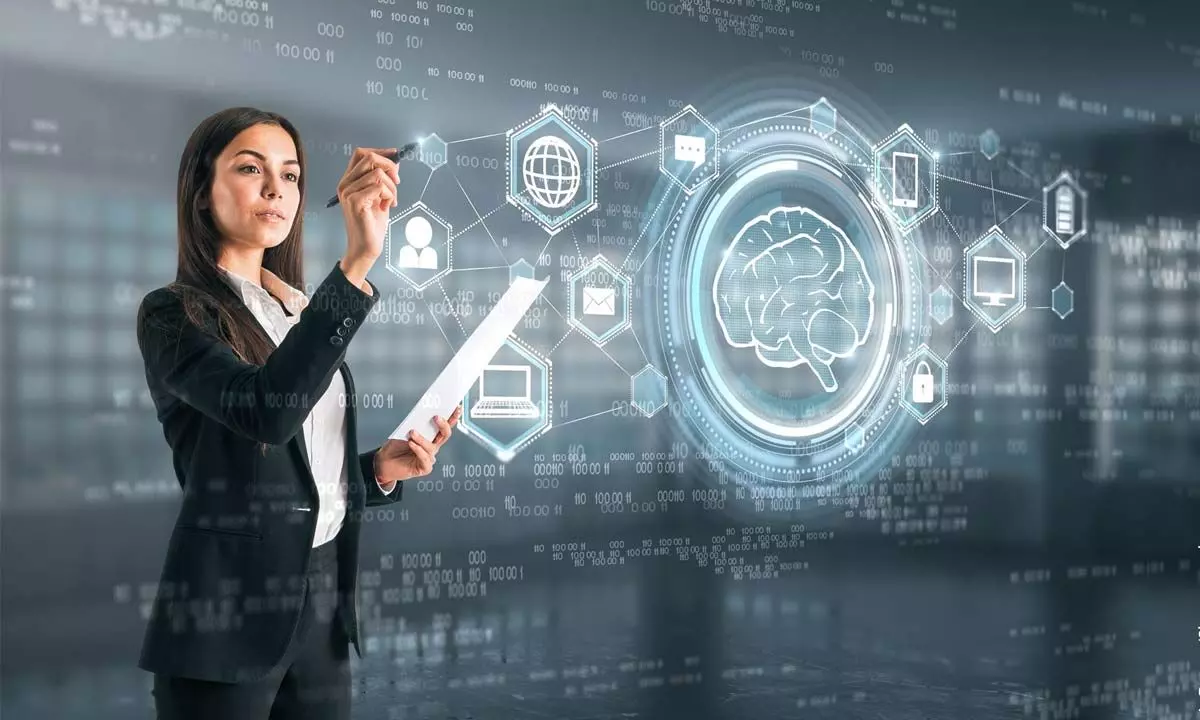AI trends that will dominate the tech space

AI trends that will dominate the tech space
AI trends are anticipated to witness an exponential rise while becoming more versatile and adaptive. Research by the IDC highlights that the AI sector might witness an investment of whopping $500 billion this year
The third computing epoch, AI has augmented the digital transformation of businesses owing to the countless benefits tied to it, such as, faster insights, improved customer experiences and unmatched efficiency. As we approach Industry 4.0, AI trends are anticipated to witness an exponential rise while becoming more versatile and adaptive.
The advanced chatbot ChatGPT backed by OpenAI garnered the attention of the tech behemoth, Microsoft. Text-to-image generators such as Dall-E 2, Midjourney and Stable Diffusion stole the spotlight after several users began generating AI art. Dell technologies Ireland made a 2023 forecast suggesting that AI could emerge as the "main engine of innovation" for the year given that an increasing number of organisations are beginning to resort to this novel tech in a bid to harness the ultimate potential of data and support teams.
Research by the IDC (International Data Corporation) highlights that the AI sector might witness an investment of whopping $500 billion this year. The Indian AI market itself is anticipated to achieve $7.8 Bn by 2025, up from $3.1 Bn in 202, at a CAGR of 20.2%.
Natural Language Processing (NLP) that involves empowering computers with the ability to understand text and speech have been utilised by several AI services that launched last year including ChatGPT and Meta's Galactica. The estimated worth of NLP market is expected to go beyond $341bn by 2030. This can be primarily attributed to its varied applications in chatbots, research-supporting AI systems and speech recognition.
Cybersecurity
Cyber attacks increased by 50% over the previous year in 2021 and have not shown any signs of slowing down so far. This makes cyber security an utmost priority for organisations globally. Such instances have compelled companies to rethink network and cloud security in order to safeguard their AI systems from severe attacks. The integration of AI and cyber security is nothing short of a dream come true as it would take the entire security ecosystem a notch higher. Log data produced by AI systems that is passed through smart security models that can identify unusual behaviour and alert security staff to take action.
Kelly Ahuja, CEO of Versa Networks, opinionated that incorporating AI and machine learning will add to the agility of IT teams and reduce the reaction time in the face of threats. This would break past the conventional methods of fixing issues manually or with scripts which would inevitably be more time consuming. AI can accelerate the automation of identity and access management systems. By integrating intelligent automation into security systems, organisations can drastically cut down the manual labour required for system security.
Using AI to track and analyse user activity, spot unusual behaviour, and improve security throughout the customer authentication process is another trend to keep an eye out for. Companies can leverage this to protect their critical data and avoid attackers.
Collaborative AI
Human and AI collaboration will soon become a norm and we would soon be working alongside AI. Though AI has the capacity to make certain roles obsolete, yet there are several systems that would not be able to function without the perspective of a human. Celestine, the automation director of digital feedback provider Applause, commented that as the usage of AI grows, the concept of augmented intelligence would also pick up the pace.
Consulting firm, Gartner refers to this as a design pattern for a human-centric partnership model that integrates people and AI working side-by-side. According to Gartner, the percentage of workforce interacting with smart AI tools on a daily basis would go up from 10% today to 80% by 2030. The speed and accuracy of AI will help automated operations, while people will concentrate more on doing specialised and creative activities like design and user experience. Teams can increase output and effectiveness in this way.
Risk assessment and management
AI has proven to be a significant tool empowering humans with the ability to bounce back from the deadly pandemic. It has aided in countless services ranging from accelerating clinical research to empowering the government to add people infected with Covid to watch list. AI can also be leveraged to track disasters produced by humans, such as forest fires, water pollution, air pollution, and other calamities that pose a threat to human existence. Predictive analytics advancements have emerged as one of the most exciting areas of AI research, with applicability in diverse areas of study.
Quantum computing and AI integrated
With staggering amounts of data, the requirement for robust and efficient computing technologies also increases. Finance, healthcare, retail, and logistics are a few of the many industries that could be transformed by quantum computing. It has the power and the capability of carrying out calculations that are beyond the capabilities of conventional computers.
Despite the fact that quantum computing is still in its early stages, Microsoft, Amazon, and IBM's cloud-based quantum computing methods and simulations have started to revolutionise several things. With quantum computers, machine learning algorithms can find patterns and abnormalities in data, revealing insights that are not attainable on conventional computers.
The ability to develop more precise and thorough models will be a good proposition for the healthcare and financial sectors primarily, improving operational efficiency and decision-making.
(The author is a Co-Founder & Chief Business Officer,
Adcounty India)











